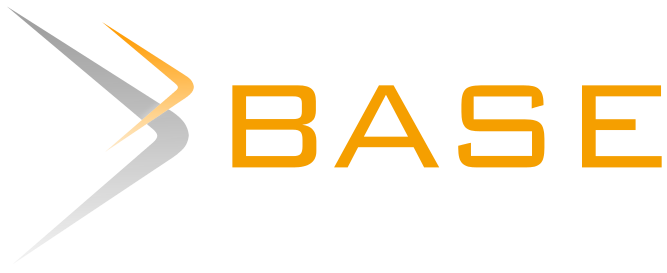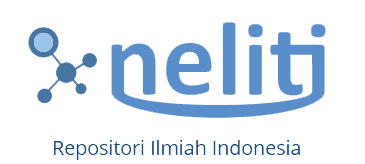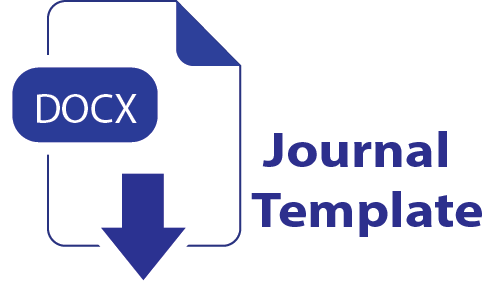KEPEMIMPINAN, KOMPETENSI DAN KINERJA PENGARUHNYA TERHADAP PENGEMBANGAN KARIR APARATUR DI KOTA PALEMBANG
DOI:
https://doi.org/10.35908/jeg.v4i2.759Abstract
This research discussed Leadership, Competence and Performance on civil servants’ Career Development in Palembang City. With the aim of whether or not there was an influence of Leadership, Competence and Performance on civil servants’ Career Development in Palembang City. The population used in this research was Civil Servants (ASN) at the Secretariat Staff in the Government of Palembang City. The sample in this research was 100 respondents. The data analysis technique used was Structural Equation Modeling (SEM). The results of test proved that: 1). Partially the results revealed that there was a significant and positive influence between Leadership, Competence and Performance on civil servants’Career Development in the City of Palembang.2). Simultaneously Career Development was influenced positively and significantly by the Leadership variable, Competence and Performance.
Keywords:leadership, competence, performance, civil servants’ career development, Palembang city.
References
A.Soegihartono, 2012. Pengaruh Kepemimpinan dan Kepuasan Kerja Terhadap Kinerja Dengan Mediasi Komitmen, Jurnal Fak, Ekonomi Univ, Dian Nuswantoro Semarang, Vol 3 Nomor 1.
Amstrong,M 1998 Ferformance Management Clays, Ltd.Ives Ple, England, Anoraga
Andhika Putra Kresnandito, 2012 Pengaruh Persepsi Kepemimpinan Transformasional terhadap perilaku inovatif karyawan, Jurnal Fak,Psikologi Universitas Airlangga, Vol 1 Nomor 2.
Anoraga, (2009) Sistem kompensasi, Jakarta.penerbit Rineka cipta
Arikunto, Suharmini,2005, Manajemen Penelitian,Edisi Revisi, Jakarta Rineka Cipta.
Azmi, Ghani, 2010 Competency Based Human Resource Practices in Malaysian Public Sector Organization, African Journal of Business Management Bangun Wilson,2012. Manajemen Sumber Daya Manusia, Bandung.Erlangga.
Bangun Wilson,2012. Manajemen Sumber Daya Manusia, Bandung.Erlangga.
Bass,B.M.&R.E. Ringgo 2006. Tranformational leadership, New York, Lawrence Erbaum Associates Publisher.
Bernadin & Rusel 2008, Human Risource Management, Universitas of California.
Boland,L.A,2005. Critical Economic Method. London George Allen and Unwin.
Bush,T. 2008. Leadership and Management Development in Education, London,A.Sage Publication Compan
Byars,Llloyd & Rue Leslie 2006, Pengukuran Kinerja berbasis Kompetensi, Translate By Uk Sinaga 2016, Penerbit Ghalai, Indonesia.
Chaney,C.2006. TheLeader’s Tool Kit Hundreads of Tips and Techniques for Developing he Skill you Need, New York, Amacom.
Collins,J,2006, Good to Great, New York, Summit.
Darlius, 2009, Disertasi Pengaruh Kepemimpinan dan kompetensi,terhadap Motivasi Implikasinya pada Kinerja Karyawan, Jakarta.Universitas Persada Indonesia. YAI.
Delahaye,B. 2011, Development Managing Learning Knowledge Capital Human Resoucess, Third Edition,Pahlan,VIC,Australia, Tidle university Press.Vol 4(2),PP.235-241.
Firdaus, Zamzam Fakhry, 2018 Aplikasi Metodologi, Yogyakarta, Penerbit Deepublish
Gallos, Joan, 2008, Business Leadership,New JerseyJohn Willey & Son
Ghozali, Imam, 2006, Analisis Multivariate Lanjutan, Semarang, Penerbit UNDIP.
Ghozali, Imam, 2008, Model Persamaan Structural, Konsep dan Aplikasi dengan Program AMOS 16, Semarang, BP Undip.
Gibson,J.L.J.M.Invencenth,et.all.2009 Organization Bahavior, Structure,Process,Thirteenth Edition,New York Mcgraw Hill
Gill,R. 2009. Theory and Practice of Leadership, New York,A. Sage Publication Company.
Greenberg, Levald dan Baron, Robert 2000, Perilaku Organisasi, Jakarta Prentice Hall.
Hariandja, Marihot Tua Efendi, 2005. Manajemen Sumber Daya manusia,Jakarta, Grasindo Cetakan ke 3.
Hasibuan, S, P, Malayu, 2007, Manajemen Sumber Daya Manusia Dasar dan Kunci Keberhasilan, Jakarta : PT, Toko Gunung Agung,
Hasibuan, S, P, Malayu, 2011, Manajemen Sumber Daya Manusia Dasar dan Kunci Keberhasilan, Jakarta : PT, Toko Gunung Agung,
Hesti,Arlich Arifani,Sukirno, 2012, Pengaruh pengendalian Intern, kepatuhan dan kompensasi Manajemen terhadap perilaku etis karyawan, Studi Kasus PT.Adi Satria Abadi Yogyakarta Jurnal Nominal Vol.1, Nomor 1.
Hoy,W.K.& Miskel,C.G.2005, Educational Administration Theory,Research and Practice,New York:Random Haose,Inc
Husaini Usman,2010.Manajemen Riset dan pendidikan, Jakarta, Bumi Aksara.
Irawaty,A.Kohar, 2008 Kosep Kepemimpinan dalam perubahan Organisasi, Studi kasus pada Perpustakaan Perguruan tinggi Universitas Sumatera Utara, Vol 4 Nomor 1.
Ismangil.W.Priono. 2006. Pertumbuhan kewirausahaan koperasi melalui pengembangan unit usaha yang fleksibel dan independen, Infokop, 29-XXII- hal 72-76.
Jajang,W.Mahri,2010. Pelayanan dan manfaat Koperasi serta pengaruhnya terhadap partisipasi anggota ( Studikasus koperasi produsen tahu tempe kabupaten Tasikmalaya, Tasikmalaya. Fak.Ekonomi Univ Pendidikan Nasional.
Jogiyanto, 2011, Konsep Dan Aplikasi Structural Equation Modeling, Berbasis Varian Dalam Penelitian Bisnis, Yogyakarta,YKPN.
Jonathan Sarwono, 2007. Analisis Jalur untuk Riset Bisnis dengan SPSS, Yogyakarta, Andi Offset.
Juanda,B.2007. Operation Research Modul Kuliah Metodologi Penelitian dan Pemodelan Ekonomi FEM IPB, Departemen Ilmu Ekonomi.
Juanda,B.2009. Ekonometrika: Permodelan dan pendugaan.Bogor,IPB,Press.
Kartono, Kartini, 2010, Pemimpin dan Kepemimpinan,Jakarta,PT. Rajawali Pers
Luthan, Fred, 2006 Perilaku Organisasi, Diterjemahkan oleh, Vivin,Andika,Yuwono dkk, edisi pertama ,Yogyakarta. Penerbit Andi
Mangkunegara (2004) Manajemen Sumber Daya Manusia Perusahaan, Bandung PT.Remaja Rosdakarya.
Mariam Budiardjo. 2009, Uji Validitas dan reliabilitas politik, jakarta,PT.Gramedia Pustaka Utama.
Maulizar,Said Musnadi, Muklis, 2012. Pengaruh Kepemimpinan Transaksional dan Transformasional terhadap kinerja karyawan, Bank Syariah Mandeiri cabang banda, jurnal Pascasarjana Universitas Syahkuala Vol 1 Nomor 1.
Moelyono Djokosantoso, 2008, More About Beyond Leadership,Jakarta,PT. Elex Media Komputindo
Muhamad Ali Saifuddin 2004, Standarisasi Kompetensi Nasional
Muwarni R. Santoso, 2006. Statistik Terapan, Tekhnik Analisis Data, Jakarta, PPs UHAMKA
Nawawi, Usman, 2008, Sumber Daya Manusia,Jakarta, Gunung Agung.
Ndraha Alizuzuhu, 2002 Teori Pengembangan Sumber Daya Manusia ,Reneka Cipta Jakarta.
Noe,A.Raymond, 2005, Employee Training and Development, New york, Mc Graw Hill
Northouse, P. G, 2007, Leadership Theory and Practice, Fourth Edition, London,Sage Publication.
Nugroho Buana Agung, 2005. Strategi Jitu Memilih Metode Statistik Penelitian, Yogyakarta, Andi Offset.
Nur Hafida, 2010. Analisis Implimentasi peran Kepemimpinan,Top Maneger sebagai upaya untuk meningkatkan Motivasi kerja karyawan dalam prespektif teori hirarki kebutuhan Maslow pada KUD Kab Malang, Jurna
Robbins,2008The Truth About Managing People,Second EditionUpper Sadle River,New Jersey:Pearson Education,Inc.
Santoso, Singgih, 2011, Structural Equation Model (SEM), Konsep dan Aplikasi dengan AMOS 18, Jakarta, PT. Lex Media Komputindo.
Sarwono, Jonathan, 2007. Analisis Jalur untuk Riset Bisnis, Yogyakarta, Andi Offset.
Sedarmayanti, 2008 Sumber Daya Manusia dan Produktivitas Kerja, Bandung,CV.Mandar Maju
Zamzam, Fakhry, Havis Aravik, 2016. Manajemen SDM Berbasis Syariah, Bogor: CV. RWTC Success
Zamzam, Fakhry, 2015, Teknik Dasar Penulisan Proposal Tesis, Palembang, Penerbit Noerfikri
Downloads
Published
How to Cite
Issue
Section
License
Authors who publish with this journal agree to the following terms:
- Authors retain copyright and grant the journal right of first publication with the work simultaneously licensed under a Creative Commons Attribution License   that allows others to share the work with an acknowledgement of the work's authorship and initial publication in this journal.
- Authors are able to enter into separate, additional contractual arrangements for the non-exclusive distribution of the journal's published version of the work (e.g., post it to an institutional repository or publish it in a book), with an acknowledgement of its initial publication in this journal.
- Authors are permitted and encouraged to post their work online (e.g., in institutional repositories or on their website) prior to and during the submission process, as it can lead to productive exchanges, as well as earlier and greater citation of published work










